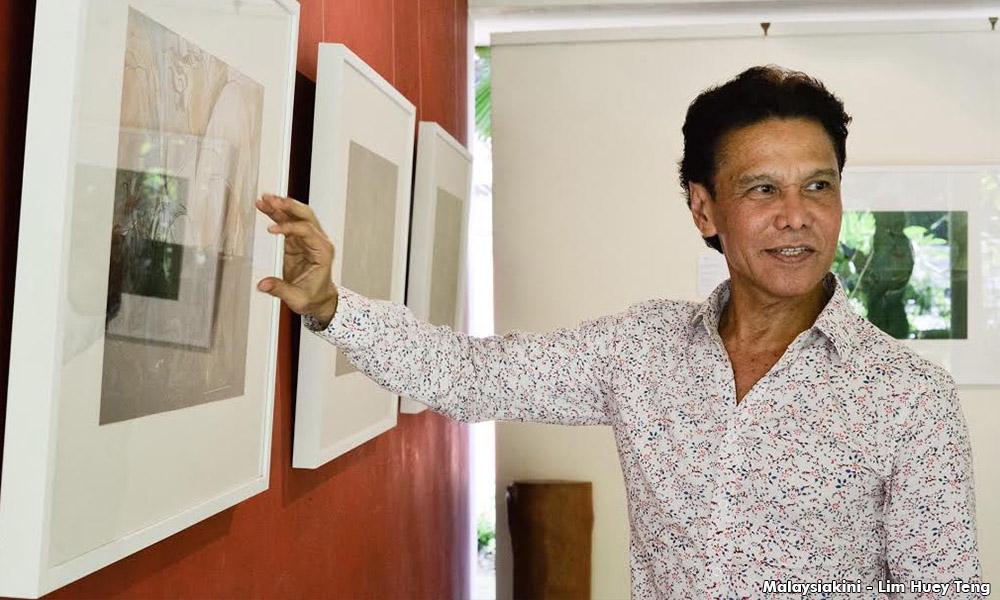COMMENT | To those who knew the late Professor Khoo Kay Kim, who passed away recently, Malaysia lost a great historian. The Sultan of Perak Raja Nazrin Shah was not far off to refer to Khoo as one of the best minds in the country.
In fact, Khoo (above) was a field hockey player with the late Sultan Azlan Shah, who rose through the ranks to be the Chief Justice of Malaysia.
The point to be made is: Malaysia is the sum of all parts, from all walks of life.
Khoo not only wrote authoritative articles on Malaya and the state of Perak in the Royal Asiatic Society of Asia Studies but in the 1980s, contributed regularly to a magazine known as All Sports.
What was interesting about All Sports, which has since been discontinued, was the colourful, albeit factual, recollections of Khoo on amazing footballers like Ghani Minhat.
Ghani, who represented Selangor, was the forerunner of top football talents like Mokhtar Dahari, James Wong, Hassan Sani, Zainal Abidin Hassan and his elder brother Khalid Ali.
Khoo was also able to speak highly of the Malaysian hockey team that reached the semi-finals of the 1975 World Cup held in Kuala Lumpur, due to the scoring prowess of Poon Fook Loke and Stephen Van Huizen, who later became the national hockey coach.
Khoo's Annals of Malay History is a must-read for his pith and brevity. More importantly, Khoo, who is of the Peranakan background, built an inter-racial family.

One of his sons was a disciple of the Indian classical dance maestro Ramli Ibrahim (photo). The work of Ramli Ibrahim is both transcendental and beautiful as it involves a Malay practising the beauty of the Indian classical art form, indeed passing it down to the family of Khoo, all without anyone questioning if the art form - since it originated from India - was a slight on the "Malay Dignity".
Khoo had many admirers in the Japanese academia too, two of whom were Assistant Professor Sadhiko Hirakawa of Waseda University and Professor Jun Ozawa, who is now retired, but considered a doyen of Malay studies in Japan.
But what made Khoo an amazing intellectual was his ability to whizz in and out of various fields, be they sports and even foreign policy.
He once explained to the South China Morning Post that "there was no need to compete with China. China has a voracious appetite of high-quality tropical fruits, such as durians, pineapple and papaya. All Malaysia needed to do was to be part of the agricultural supply chain of a China that was increasingly having an acquired taste of Southeast Asia local fruits. And the trade balance would eventually be in both countries' favour, beyond the support or export of bird's nest alone."
On Malaysia, the future of the country, according to Khoo, rests with its unity and compact but unorthodox understanding of the totality of Malaysian history.
Whether the football captaincy alternates between Soh Chin Sun, Santokh Singh, or Mokhtar Dahari, or even Shukor Salleh from Penang, the key was a singular focus to defeat the opponent.
In this sense, the talk about who would be the 8th prime minister of Malaysia is not as important as the promise that was made by the people prior to 14th general election on May 9, 2019.
Since the people elected a system where the PM would first be Dr Mahathir Mohamad, followed by Anwar Ibrahim, the key is that both of them have agreed on the plan and committed to the plan and it is best to leave it to them.
That, in essence, was what the full scholarship of Khoo evinced, which is the same kind of scholarship exuded by the likes of Terence Gomez and KS Jomo.
Principled, cool and sassy, to say the least.
RAIS HUSSIN is a supreme council member of Bersatu. He also heads its policy and strategy bureau.
The views expressed here are those of the author/contributor and do not necessarily represent the views of Malaysiakini.

